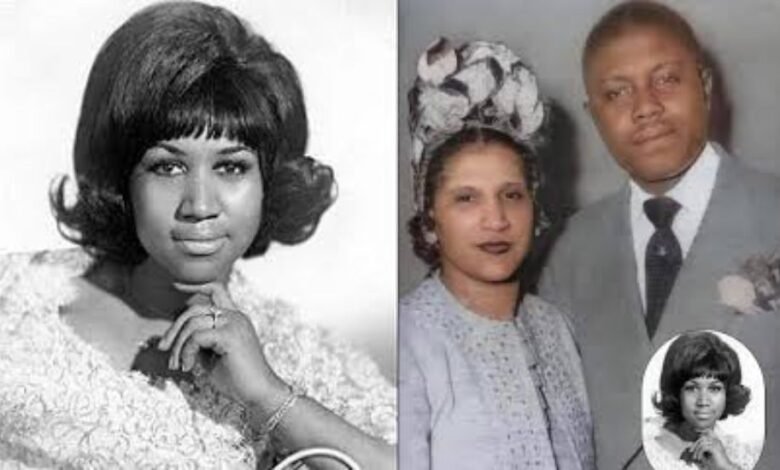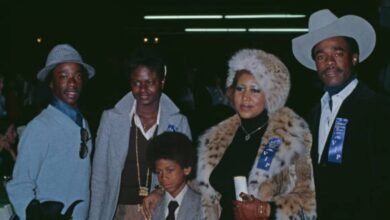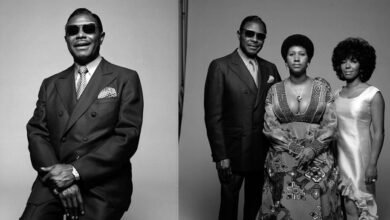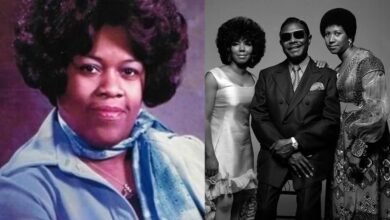Barbara Siggers Franklin: Life, Legacy, and Family

Barbara Siggers Franklin remains an important figure in American history, known both as the wife of renowned preacher C. L. Franklin and as the mother of Aretha Franklin, the Queen of Soul. While her life was tragically short, Barbara’s influence shaped one of the most iconic musical families in history. She was a talented pianist, a caring mother, and a woman who quietly left an indelible mark on her children and their future.
Her story is not simply one of motherhood but also of artistry, faith, and resilience. Barbara lived during an era when women in the African American community often balanced family obligations, church responsibilities, and their own aspirations. She managed to do all three while raising children who would go on to change music and culture forever.
Early Life and Nationality
Born on June 29, 1917, in Shelby, Mississippi, Barbara Vernice Siggers was American by nationality. She grew up in the segregated South, where opportunities for African American women were limited. Despite the challenges of her time, Barbara displayed remarkable gifts that helped define her life.
Music played a central role in her upbringing. Barbara developed a passion for the piano and quickly became an accomplished player, admired within her church community. She also possessed a strong singing voice, which she used to uplift others during worship services. Her combination of talent and faith made her a beloved figure among those who knew her.
Barbara’s early years instilled in her the values of resilience, determination, and devotion to faith—qualities she would later pass down to her children.
Marriage to C. L. Franklin
In 1936, Barbara married Rev. C. L. Franklin, a charismatic preacher whose sermons attracted large congregations. C. L. was known for his booming voice, passionate preaching style, and involvement in civil rights causes. His reputation as a gospel singer and minister gave him national recognition, making the Franklin household a lively place filled with music, prayer, and community activity.
Together, Barbara and C. L. had a family that would become legendary. Yet their marriage faced serious difficulties. C. L.’s growing fame and personal struggles strained the relationship, and by 1948, Barbara decided to separate from him. She moved to Buffalo, New York, while her husband remained in Detroit with the children.
Though the separation created physical distance, Barbara’s role as a mother never diminished. She visited her children often and kept close contact with them, ensuring they always felt her love and guidance.
Role in the Church and Community
Beyond being a mother and wife, Barbara had her own identity within the church community. Her skills as a pianist and singer made her a valuable contributor to worship services. Like many African American women of her generation, she found in the church both a spiritual home and a platform to express her creativity.
Barbara’s presence in the church was not limited to music alone. She was remembered as a compassionate woman who cared for others, often supporting families in need and offering guidance to young women in her community. Her ability to balance her faith and family responsibilities reflected her strength of character.
The church was also where Barbara’s children learned the foundations of music. They absorbed the rhythms, harmonies, and emotional intensity of gospel performances, which would later influence Aretha Franklin and her siblings in profound ways.
Barbara in Film and Media
Though Barbara passed away before her children rose to fame, her story has not been forgotten. In the 2021 film “Respect,” which portrayed the life of Aretha Franklin, Barbara Siggers Franklin was depicted as a gentle and caring presence who inspired her daughter’s musical journey. Actress Audra McDonald played Barbara, bringing tenderness and strength to the role.
The film highlighted Barbara’s nurturing influence and her ability to provide comfort during Aretha’s struggles as a young girl. While dramatized for storytelling purposes, the portrayal introduced Barbara to new audiences and reminded the world of her importance in Aretha’s formative years.
Barbara has also been referenced in documentaries and biographies about Aretha Franklin, where her role as a mother and musician is acknowledged as foundational to the Franklin family’s success.
Barbara’s Children
Barbara Siggers Franklin’s legacy shines most brightly through her five children. Aretha Franklin, the most famous, became the Queen of Soul and one of the greatest voices in music history. Her gospel roots, shaped by her parents, gave her the ability to connect deeply with audiences around the world.
Erma Franklin built her own career as a respected singer, best remembered for her hit “Piece of My Heart.” She supported her sister Aretha throughout her career and contributed background vocals to many famous recordings.
Carolyn Franklin was also a gifted vocalist and songwriter who contributed to many of Aretha’s iconic recordings, including backing vocals and arrangements that helped define the Franklin sound.
Rev. Cecil Franklin followed in his father’s footsteps, carrying on the ministry and guiding the family after the deaths of his parents. He played an important role in protecting Aretha’s legacy and managing aspects of her career.
Lastly, Vaughn Franklin lived a more private life away from the public spotlight, but remained a cherished part of the Franklin family. Together, they carried forward Barbara’s love of faith, music, and resilience, ensuring that her spirit lived on through each of them.
Impact on Aretha Franklin’s Early Years
Although Barbara died when Aretha Franklin was only 10 years old, her influence remained strong throughout Aretha’s life. Aretha often recalled her mother’s gentle singing voice and her skill at the piano. These memories became a source of comfort and inspiration during her own musical development.
It was Barbara who first exposed Aretha and her siblings to the emotional power of music within the home and church. Even after her passing, Aretha felt guided by her mother’s presence, often drawing strength from the memory of Barbara’s encouragement and musical gifts.
In many ways, Barbara’s short life planted the seeds for Aretha’s extraordinary career. Without her mother’s early guidance, Aretha’s path to becoming the Queen of Soul might have been very different.
Barbara’s Death and Legacy
Sadly, Barbara Siggers Franklin died on March 7, 1952, in Buffalo, New York, at just 34 years old, reportedly from a heart attack. Her passing left her children very young, with Aretha only 10 at the time. Despite this tragedy, her musical talents and nurturing love continued to influence them throughout their lives.
Barbara’s presence was felt in every note her children sang and every step they took in their personal journeys. Her early death made her almost a mythic figure within the Franklin family—a symbol of love, music, and strength that could never be forgotten.
Conclusion
Barbara Siggers Franklin was more than a pastor’s wife and the mother of a superstar—she was a talented woman whose brief life left a powerful legacy. Her strength, faith, and love of music ensured that her influence endured long after her passing. She remains a symbol of resilience and inspiration, remembered not only for her connection to a famous family but also for the quiet yet profound role she played in shaping history.
For more stories of inspiring figures like Barbara Siggers Franklin, visit Sinuly Celebrities.




